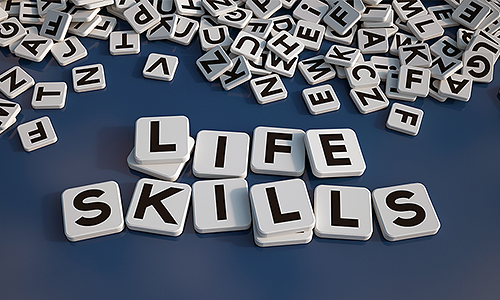 By Bill English, Partner
By Bill English, Partner
I always wanted to be a pro on the PGA tour. But the day came in my life, earlier rather than later, when I realized that I simply didn’t have the physical capabilities to do what the pros can do. I couldn’t hit the ball much farther than 230 yards, and in this day and age, I think 300 yards is the minimum if you’re going to compete in a PGA event.
Professional athletes, actors, musicians and most professionals have considerable raw talents. But those who are successful with their skills have devoted their lives to developing their talents. Their abilities on the field, the court, or the stage take years to develop. While some of what they do might have come naturally, much of what we see is due to considerable work and dedication to improving their skills, mental toughness and emotional capacities. These are the people who serve before kings. They don’t perform before those of “low rank.”
In life, we get ahead not by crushing the poor in court or stealing from others, but by developing our skills to the point where we have an excellent work product. When potential customers compare our work with that of our competitors, they will buy from us. Those who try to gain customers and amass wealth through nefarious ways will not be successful because their work products will be inferior.
 Those with significant wealth and power are typically drawn to work with highly qualified professionals. For example, the best athletes are usually broadcast on TV so that millions can watch them. The same is true for journalists, entertainers, musicians and others.
Those with significant wealth and power are typically drawn to work with highly qualified professionals. For example, the best athletes are usually broadcast on TV so that millions can watch them. The same is true for journalists, entertainers, musicians and others.
In business, while we don’t put professionals like attorneys, accountants, bankers, doctors, financial planners, and others on TV, those who are the most competent are usually well-known within their verticals. You’ll find these individuals have influential people as their clients. They are serving before “kings.” But they don’t stop at developing their professional skills. They also work on improving their people skills: they work on developing their strengths and shoring up their weaknesses.
If you own or lead a business, many of the persistent problems you have ultimately come from the deficits you have in your personality. The best leaders are self-aware, so we learn about ourselves. We become honest with ourselves about how we need to improve. We face the complex, painful parts of our personalities, so that we can become more than we are today. We do this purposefully and often, in connection with a group or a coach. The best business owners are not islands nor are they isolated. They learn from their mistakes, take criticism and engage in developing their entire personhood. When they do this, their entire suite of professional skills are enhanced. Their success might look like it’s on steroids.
The healthier a person you are, the better leader you can become. So, becoming a better person could mean hiring a coach to help you learn how to face conflict. It could mean taking a deeper dive into areas like anger or greed to resolve those issues in your life. Personal improvement doesn’t have an immediate, positive impact on your profits or balance sheet. But over time, you’ll become a better leader and a better person. You’ll learn that better operational efficiencies and positive interpersonal dynamics can be a real competitive advantage for you. And top talent in your industry will want to work with you and for you.
By all means, lean into developing your professional skills. But at the same time, learn to lean into developing who you are as a person. You’ll be glad you did.
